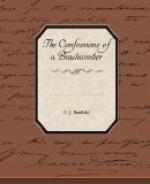Unfeigned pity is bestowed upon the denizens of North Queensland on account of the pains and penalties and discomforts alleged to be the sentence of all who dare select it as home. We who know can but smile and wait; and ever call call to mind pleasant and happy experiences, everlasting truths and “the falsehood of extremes.”
Even in the matter of cyclones—often quoted as one of its detriments—North Queensland has nothing to hide. At intervals Nature does indulge in a reckless and violent outburst, but not more frequently here than in other parts of the world. Year after year the seasons are passive and pleasant, and in every respect considerate of humanity and encouraging to humanity’s undertakings. Then, abandoning for a few hours her orderly and kindly ways, Nature runs amok, raving and shrieking. Her transient irresponsibleness and mischievousness are then cited as everyday, persistent vices. Not so. Nature is rational even in her most passionate moments. Vegetation, rank and gross as in an unweeded garden, requires vigorous lopping and pruning. These twenty-year-interval storms comb out superfluous leaves and branches, cut out dead wood, send to the ground decayed and weakly shoots, and scrub and cleanse trunks and branches of parasitic growths. All is done boldly, yet with such skill that in a few weeks losses are hidden under masses of clean, insectless, healthy, bright foliage. The soil has received a luxurious top-dressing. Trees and plants respond to the stimulus with magical vigour, for lazy, slumbering forces have been roused into efforts so splendid that the realism of tropical vegetation is to be appreciated only after Nature has swept and sweetened her garden.
A more vivid and more idealised medium than the poor one which with diffidence I employ were essential if entertainment alone were sought in these pages; but even faint and imperfect etching of one Australian scene, little known even to Australians, may in some degree tend to enlightenment.




